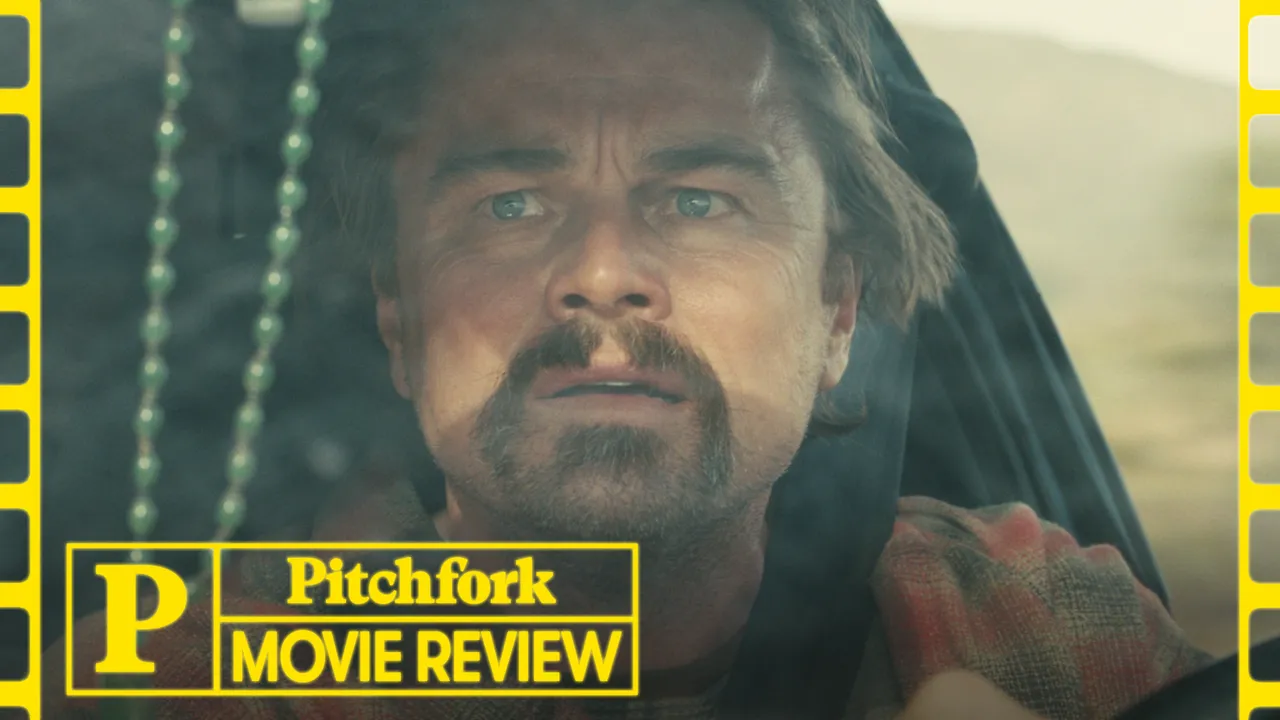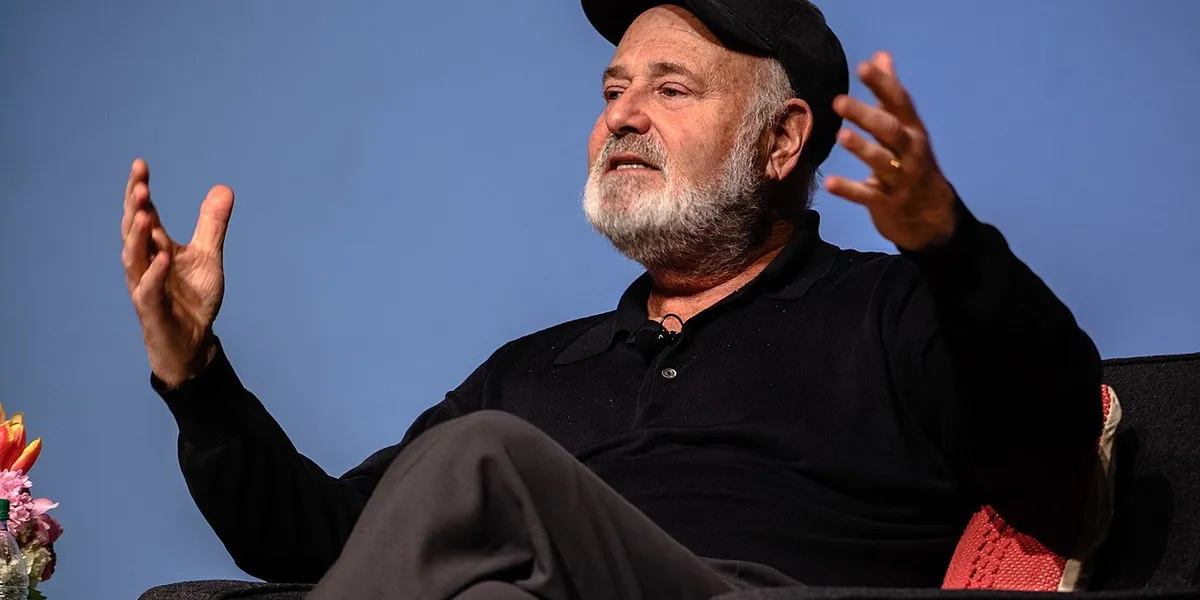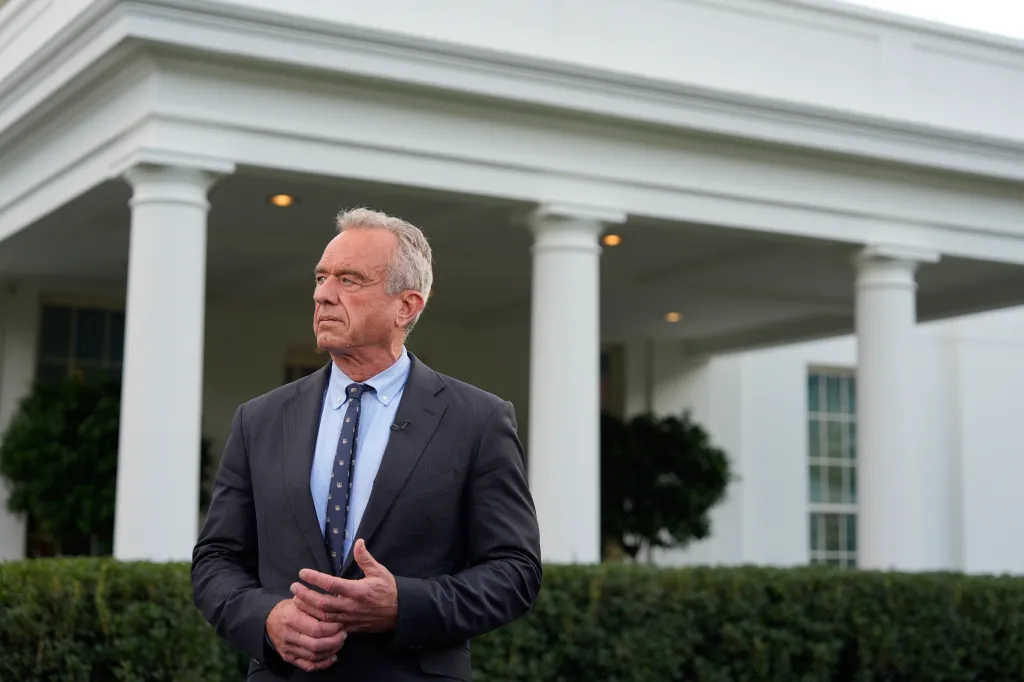
There are things, inanimate objects, that are difficult to forget. The wig that a revolutionary pulls low over her skull when she suspects a man in the grocery store is a mercenary looking for her; when she flees through a back door and is shot in the side of the head, it pops off like a toy snake from a canister. The blanket, wrapped tightly around a baby, and its flourishes of red embroidery looking eerily like speckles of blood. The white zip ties, the black SUVs. The cover page of a witness-protection agreement, taped to the window of a suburban home, amended in Sharpie: “THIS PUSSY DON’T POP FOR YOU.”
Over the past decade or so, there’s been a lot written about how our major commercial auteurs, many of them white men around Paul Thomas Anderson’s age, have avoided making movies set in the present day. Instead, they retreat into a past without phones or the internet and whose politics have yet to be bludgeoned into hyperlegibility. Depending on how you look at it, that argument is now underlined by—or ends with—One Battle After Another, Anderson’s monumental tenth film. Based on Thomas Pynchon’s Vineland but transposed to the present, it’s acutely attuned to America today: the unchecked power, the unmarked cars, the quasigenocidal bend toward biological determinism. And for its frequent infusions of absurdist comedy, that word, Battle, in the title, is sincere. Those aforementioned items—like the homemade transponders that occasionally work and the bombs that always do—are unambiguously the detritus of war.
One Battle follows another ex-revolutionary (Leonardo DiCaprio), now holed up outside a fictional Northern California town and almost perpetually drunk or high, but otherwise doting on his teenage daughter (newcomer Chase Infiniti). In the present, they’re Bob and Willa Ferguson, fake names assumed 16 years ago when the French 75, a revolutionary network for which Bob was a munitions expert, was forced to scatter. The catalyst for the group’s disbandment was the capture and looming grand jury testimony of Perfidia (Teyana Taylor), Willa’s mother. Willa is aware of the contours of her parents’ past lives: She’s been taught a series of code phrases and instructed to trust her life to any stranger who says them to her; she knows to carry her transponder; she knows she has to hide her iPhone from her father because he would tell her it is traceable.
Published in 1990, Vineland was about the splintering of the radical movements from the two decades prior. While Pynchon satirizes the overwhelming power of the state, he’s also incisive about the ways people rationalize their drift toward the establishment, their willingness to turn on their friends, and the palliative appeal of suburban calm.
One Battle is updated for blunter times. After Perfidia’s arrest, every member of the French 75 is killed or pushed underground. The Fergusons are pursued by one Col. Steven J. Lockjaw (Sean Penn), whose Vineland analogue is magnetic, appealing, persuasive, but here is merely evil, a brutal instrument and embodiment of an openly bloodthirsty power structure. In the opening act, he rapes Perfidia; when he marshals dozens of soldiers to lay siege to a small town in service of a pet project, there’s no sense that he has to convince his superiors. This is hell, and if he’s not in charge, he’s in lockstep with those who are.
Despite that notable change, watching One Battle After Another is much like the experience of reading Pynchon, who lurches from high comedy to stomach-turning naturalism and punctuates plot-heavy sequences with little grace notes of character portraiture. Here, Anderson opens with the liberation of an immigrant-detention center at the U.S.-Mexican border, depicts numerous shooting deaths, and has images of displaced children huddling on cement floors and scurrying through tunnels—but also depicts a network of wealthy and powerful white nationalists who call themselves the Christmas Adventurers. He’s able to stitch these seemingly disparate pieces together through sheer command of craft: thoughtful pacing, portentous editing, and a sense of mounting dread that is maintained and accelerated by the singular, almost ever-present Jonny Greenwood score.
One Battle is primarily a film about race. The French 75 is largely Black: Beyond Taylor’s Perfidia, operatives and allies are played Wood Harris, Regina Hall, Starletta DuPois, and the musicians Dijon and Junglepussy, among others. During his time as an active member, Bob was known as “Ghetto Pat,” and retains a penchant for calling people “homie”; when he and Perfidia are making out in the back of a sedan as it speeds away from the detention center, he’s goaded into saying just how much he loves “Black girls.” Lockjaw, who spent years lusting after Perfidia, is so ideologically committed to white supremacy that when he seeks initiation into the Adventurers, he plans to find and kill Willa for fear that she’s his daughter. The math here is clear: The fetishization of Black women spans the entire political spectrum, from those sincerely seeking Black liberation to those who would like to see Black people killed en masse.
But this observation is only a starting point. One Battle shows solidarity across lines of race and class, but also the friction inherent to those alliances. When, during the siege, Bob is taken in by his daughter’s martial arts instructor, Sensei Sergio (Benecio del Toro), the latter’s unflappability is played for laughs. But Sergio’s cool efficiency as he directs dozens of undocumented children to safety makes Bob’s panic over the whereabouts of his daughter, confirmed to be safe with people he trusts, seem at least a little solipsistic. Bob’s almost tearful lament, from later in the film, that he can’t properly do his daughter’s hair, is heartbreaking.
Elsewhere, characters wield whatever power race gives them—however uneasily. Lockjaw imprisons and murders people with impunity, but is made insecure around the Adventurers by the fact he’s been sexually fixated on those they, and he, have deemed impure. A monologue about Black power is fearfully made manifest by a gunshot in a bank robbery. And, in the wrenching sequence where Perfidia leaves Bob and Willa, she expresses disgust at the way white revolutionaries have to be coddled and carried along. It has the sting of truth—but is undercut by the sorrow Taylor masterfully layers below Perfidia’s rage.
We are, in fact, living in an age of “identity politics,” but in the sense that people are shunted into camps, jails, or coffins based on the color of their skin. And so it’s truly ingenious that one of One Battle’s tensest sequences sees a portable paternity test deployed in a chapel. The myopia required to derive true meaning from such a thing—barely more sophisticated than phrenology—is staggering. But it’s the logical endpoint of the belief that some people are chattel and others are entitled to use them as they please. Later, after Willa screams at Lockjaw about her mother (“She was a rat!”), he’s practically salivating when he responds: “She was a warrior.”
Infiniti is asked to play the put-upon daughter of a man-child father, a scared child, a phony among true believers, and eventually, a reluctant killer. She acquits herself unbelievably well. The adrenaline-soaked shriek she lets out after shooting and killing the IZOD-clad Adventurer who had been pursuing her in a superb highway chase sequence is nearly on par with Jena Malone’s yelp of joy that serves as the thesis at the end of Anderson’s Inherent Vice. DiCaprio, as the father who loves her more than anything but is aware of the limits of his use to her, has never been better.
A moment after that scream, Bob comes across the wreckage of the chase. When he sees Willa coiled behind a sign at the side of the road, he’s overcome with relief. But she can’t relax: she raises the pistol toward him and asks him to repeat back the code phrases. He doesn’t. Instead, he reasons: I’m your dad. The gun comes down. She believes him—he is.



